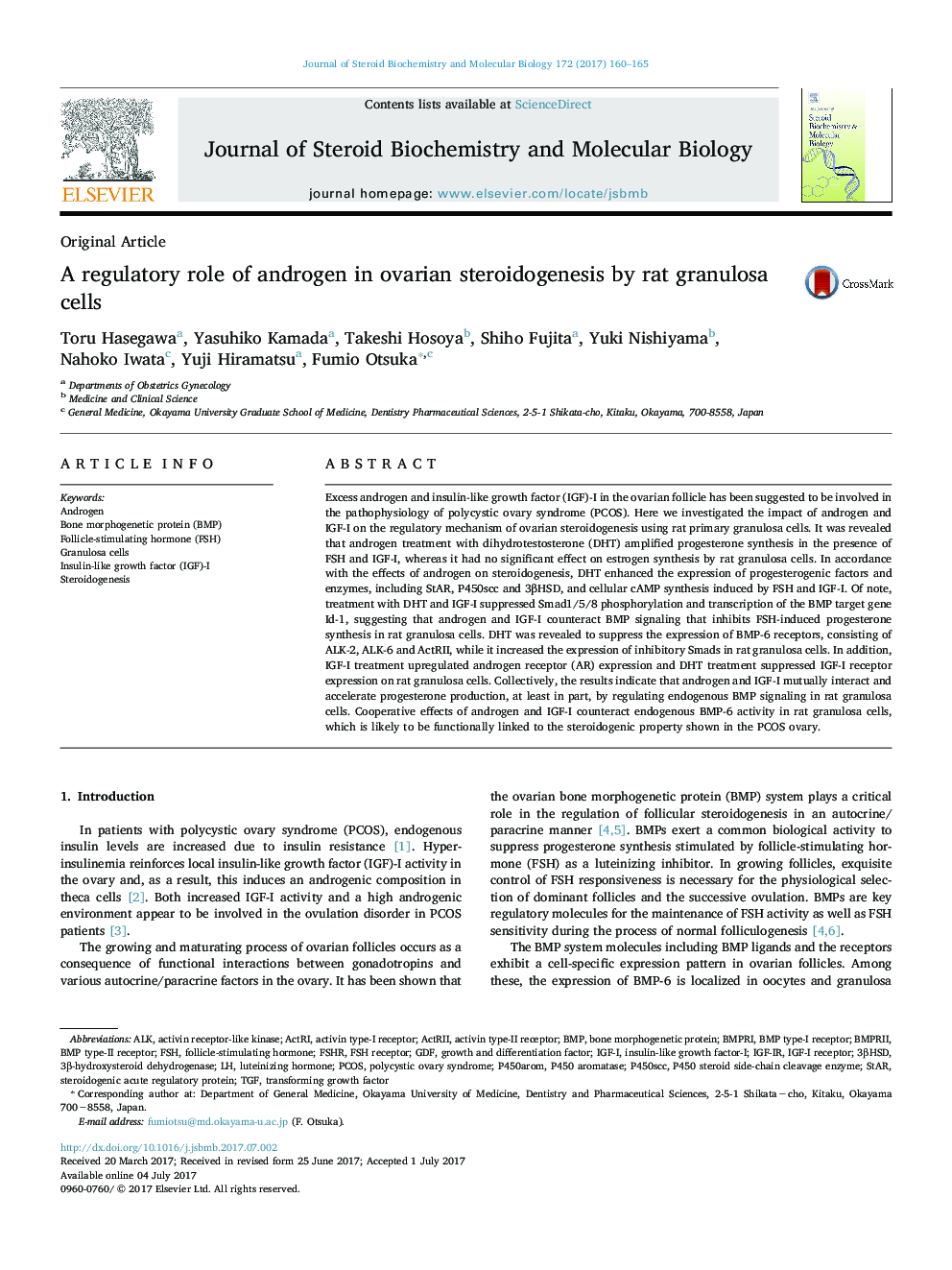| کد مقاله | کد نشریه | سال انتشار | مقاله انگلیسی | نسخه تمام متن |
|---|---|---|---|---|
| 5513050 | 1540975 | 2017 | 6 صفحه PDF | دانلود رایگان |
- Androgen enhances progesterone level induced by FSH and IGF-I in rat granulosa cells.
- Androgen promotes steroidogenic enzyme expression by inhibiting BMP-Smad signaling.
- IGF-I stimulates AR expression but androgen reduces IGF-IR level in rat granulosa cells.
- Androgen and IGF-I cooperate to induce ovarian steroidogenesis by antagonizing BMP.
Excess androgen and insulin-like growth factor (IGF)-I in the ovarian follicle has been suggested to be involved in the pathophysiology of polycystic ovary syndrome (PCOS). Here we investigated the impact of androgen and IGF-I on the regulatory mechanism of ovarian steroidogenesis using rat primary granulosa cells. It was revealed that androgen treatment with dihydrotestosterone (DHT) amplified progesterone synthesis in the presence of FSH and IGF-I, whereas it had no significant effect on estrogen synthesis by rat granulosa cells. In accordance with the effects of androgen on steroidogenesis, DHT enhanced the expression of progesterogenic factors and enzymes, including StAR, P450scc and 3βHSD, and cellular cAMP synthesis induced by FSH and IGF-I. Of note, treatment with DHT and IGF-I suppressed Smad1/5/8 phosphorylation and transcription of the BMP target gene Id-1, suggesting that androgen and IGF-I counteract BMP signaling that inhibits FSH-induced progesterone synthesis in rat granulosa cells. DHT was revealed to suppress the expression of BMP-6 receptors, consisting of ALK-2, ALK-6 and ActRII, while it increased the expression of inhibitory Smads in rat granulosa cells. In addition, IGF-I treatment upregulated androgen receptor (AR) expression and DHT treatment suppressed IGF-I receptor expression on rat granulosa cells. Collectively, the results indicate that androgen and IGF-I mutually interact and accelerate progesterone production, at least in part, by regulating endogenous BMP signaling in rat granulosa cells. Cooperative effects of androgen and IGF-I counteract endogenous BMP-6 activity in rat granulosa cells, which is likely to be functionally linked to the steroidogenic property shown in the PCOS ovary.
Journal: The Journal of Steroid Biochemistry and Molecular Biology - Volume 172, September 2017, Pages 160-165
